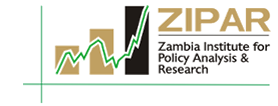Climate finance is undoubtedly one of Africa’s most significant challenges. The region faces a huge financing gap, particularly adaptation financing. This project investigates the current status, practical experiences, and perceptions of state and non-state actors from South Africa, Ghana, and Zambia.
Climate finance is undoubtedly one of Africa’s most significant challenges. The region faces a huge financing gap, particularly adaptation financing. It is estimated that the continent would require over USD3 trillion in conditional and unconditional financing to uphold its Nationally Determined Contributions. The Africa Group of Negotiators has called for USD1.3 trillion a year in climate finance to be made available from 2025.
At COP15 in Copenhagen in 2009, industrialised countries committed to collectively contributing US$100 billion annually until 2020 to support developing countries in their climate change needs. Despite expected increases in adaptation costs, estimated to reach US$140 billion–US$300 billion in 2030, the support pledged for climate finance by the world’s wealthiest economies has failed to materialise. As of 2021, only US$80 billion of the US$100 billion per annum commitment had been met; of this, only around US$20 billion was provided to Africa between 2016 and 2019. It is worth noting that this climate financing gap is separate from Africa’s other infrastructure financing gaps.
Aside from developed countries reneging on their climate finance commitments, the structure of existing climate finance continues to perpetuate greater inequities because climate finance to developing countries has largely been disbursed as loans and not as grants. In 2019, an OECD study indicated that loans represented 71 percent of public climate finance. The terms of these loans are prohibitive, and their very design excludes the poorest and most vulnerable countries from benefitting. Moreover, the heavy dependence on loans has negative social and economic implications for African countries, including contributing to an increase in debt vulnerability, raising the question of why African countries should be saddled with loan repayments and interest to finance their climate actions.
Regrettably, COP26 ended with no major breakthrough on this issue. Going into COP27, Africa needs to make a strong case that the current climate finance mechanism and architecture are not aligned with realities in African countries and are not meeting Africa’s needs. To contribute to addressing these challenges and capitalise on the agency of African policymakers and practitioners, it is necessary to explore the systems that underpin public climate finance delivery and implementation.
This project investigates the current status, practical experiences, and perceptions of state and non-state actors from South Africa, Ghana, and Zambia. South Africa is the highest recipient of multilateral climate financing on the continent and the sixth-highest internationally. However, only about 2% has been directed to adaptation. The largest share of funding has gone into energy projects and transportation and storage. On the other hand, Zambia has received relatively high amounts of adaptation financing relative to the country’s assessed climate vulnerabilities. Ghana is a mid-tier multilateral climate financing on the continent. The largest share of funding has gone into agriculture, forestry, fishing, and the energy sector. The diversity in these case studies enables the project to offer a nuanced picture of the factors driving the climate financing flows into African countries and what valuable lessons can be learned to shape climate financing policy on the continent.
The project has adopted a collaborative approach to setting project goals and developing solutions. We are working closely with local researchers, support institutions, and other partners from policy, academia, and civil society to conduct country- specific analyses and to develop recommendations that are fit for purpose as identified and defined by local actors. The project will also pay particular attention to issues of equity, justice, and inclusion, especially in respect to gender and endeavour to target sectors in need for urgent climate adaptation with potential for broader societal value, beyond economic value.

The Africa Centre for Energy Policy (ACEP) was established in 2010 to contribute to development of alternative and innovative policy interventions through high quality research, analysis and advocacy in the energy and extractives sector in Africa.

The Zambia Institute for Policy Analysis and Research (ZIPAR) is a think tank whose mandate is to conduct research and policy analysis to inform public policy.